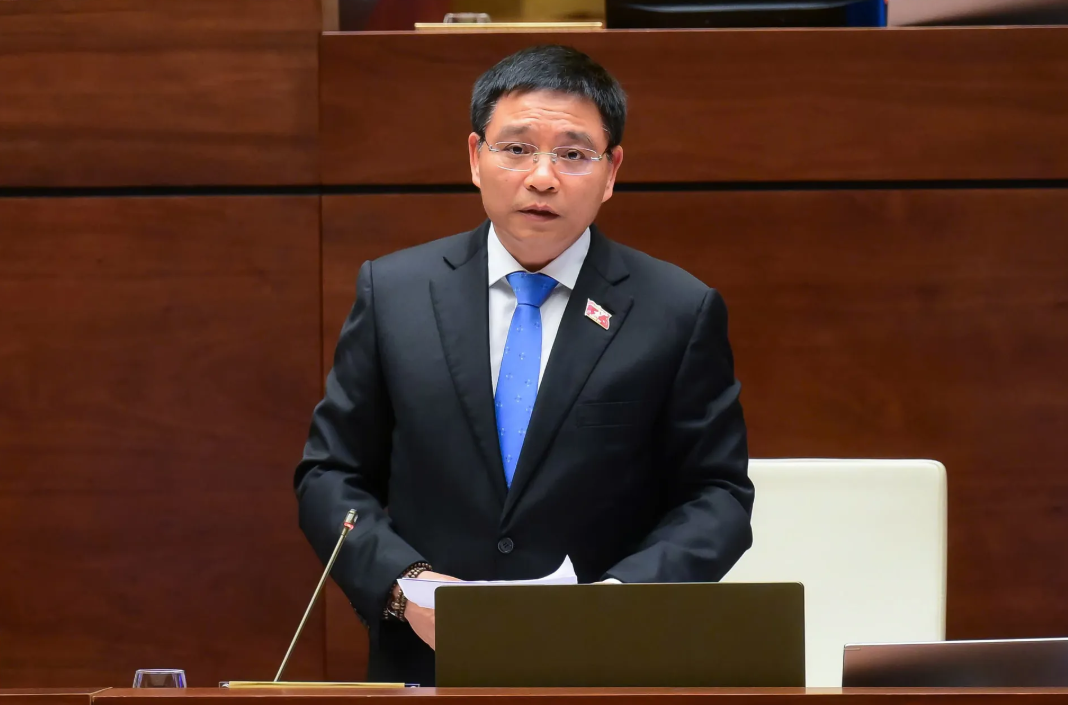Vietnam sets 8% growth targets for SOEs in 2025
Now that state-owned enterprises have been granted full autonomy, they must adopt modern management practices and shift their mindset to deliver business results that exceed 8%.
THE HANOI TIMES — State-owned enterprises (SOEs) are expected to grow by 8% this year, contributing to the country’s socioeconomic development goals.

Minister of Finance Nguyen Van Thang. Photo: quochoi.vn
Minister of Finance Nguyen Van Thang shared this outlook during a discussion session at the National Assembly on June 19 in response to a question from Deputy Khang Thi Mao, from Yen Bai, requesting solutions for SOEs to achieve this year's growth target and lay the foundation for future double-digit growth.
Thang added that the Ministry of Finance currently represents the state as a capital stakeholder in 18 major SOEs.
“These enterprises have been instructed to revise their business plans to include a growth target of at least 8% to contribute to the overall economic growth goal,” said Thang.
Meanwhile, the government has submitted amendments to several laws governing enterprise operations to the National Assembly for approval, specifically, the Law on Management and Use of State Capital in Enterprises, the Law on Investment, the Law on Bidding, and tax laws to unlock resources and enhance operational efficiency within SOEs.
"The government only controls the capital contributed to enterprises, giving SOEs full autonomy, including the ability to make decisions regarding salaries, bonuses, and capital increases. Therefore, they have the freedom to modernize management practices to achieve business results above 8%," said Thang.

Overview of the session.
He added that SOEs must take the initiative to modernize, focusing investment on core sectors and avoiding dispersion. For corporations with both commercial and political responsibilities, such as those in electricity or petroleum, the government will monitor and support to help them overcome difficulties in meeting their business targets.
During the subsequent debate, Ta Van Ha, Vice Chairman of the National Assembly's Committee on Education and Culture, questioned the feasibility of a growth target above 8% for SOEs.
Citing a government report, Ha noted that, in 2023, 134 SOEs recorded combined losses of around VND115.3 trillion (US$5 billion). "Given these losses, is it realistic to expect them to turn a profit and grow over 8%?" Ha asked.
Thang reiterated that SOEs now have nearly the same autonomy as private firms. With this year’s GDP growth target set above 8%, Thang stressed that SOEs, as the backbone of the economy, must play their part.
He said that the 18 corporations under the Ministry of Finance’s oversight are in "good health" and therefore cannot be permitted to set business targets below 8%. They must reduce costs and restructure operations.
“Some may meet their targets, while others may fall short. On average, however, growth must exceed 8%,” he said. He added that the Ministry of Finance, in its role as capital representative, will supervise and evaluate objectively, applying specific sanctions where necessary.
"If an enterprise underperforms, the response will range from a warning to salary cuts or accountability reviews, depending on the severity. Businesses must operate transparently and fairly," he stated. He expressed confidence that this year's 8% growth target for SOEs is achievable and will support the country's overall economic development.












